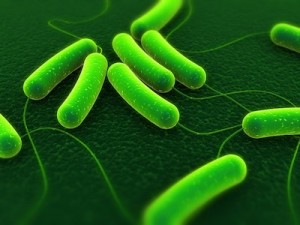In northwest Missouri, one person has a confirmed case of E.coli 0103 infection and two others have suspected cases, according to the Missouri Department of Health and Senior Services. None of the case patients has been hospitalized and a source of the outbreak has yet to be determined. The investigation is ongoing.
 In its January 11 announcement of the outbreak, the health department said the illnesses might be related to the consumption of “locally-produced, raw (unpasteurized) dairy products.” But a definite food source has not been confirmed.
In its January 11 announcement of the outbreak, the health department said the illnesses might be related to the consumption of “locally-produced, raw (unpasteurized) dairy products.” But a definite food source has not been confirmed.
E. coli O103 is similar to the more common strain E. coli O157:H7 in that it is a Shiga toxin-producing E. coli (STEC). Up until last year, non 0157:H7 STEC were not classified as adulterants in beef, meaning it was legal to sell beef contaminated with them. Because they were not considered adulterants, there was limited public health surveillance of non-O157 STECs, so many cases may have gone undiagnosed or unreported over the years.
Last June, a new rule classified E. coli 0103 and five other STEC strains, known collectively as The Big Six, as adulterants in beef. The U.S. Department of Agriculture’s (USDA) Food Safety and Inspection Service (FSIS) estimates that banning The Big Six-E. coli O26, E. coli O45, E. coliO103, E. coli O111, E. coli O121 and E. coli O145, will reduce by 110,000 the number of foodborne illnesses reported in the U.S. each year. Because they are now considered adulterants, there is likely to be increased public health surveillance.
Shiga toxins cause the the lining of the intestines to swell and sometimes damage other organs. According to the Centers for Disease Control and Prevention (CDC), “STEC infection causes acute, often bloody, diarrhea. Approximately 8% of persons who receive a diagnosis of O157 STEC infection develop hemolytic uremic syndrome (HUS), a life-threatening condition characterized by thrombocytopenia, hemolytic anemia, and renal failure.”
STEC can show up in all kinds of food including meat, vegetables, fruits and raw dairy products and unpasteurized beverages. Anyone who develops the symptoms of bloody diarrhea, vomiting and severe abdominal cramping should see a doctor.




